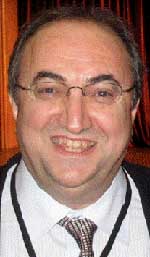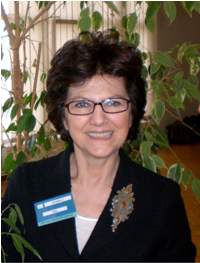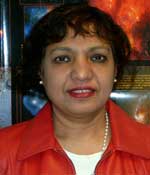Newly Elected to the FIP Executive Committee

Esen Ercan Alp, Senior Scientist at Argonne National Laboratory was elected to Vice-Chair and the 4-year Chair Line term beginning in January 1 of this year.
Alp received BSc and MSc degrees from the Middle East Technical University in Ankara, and a PhD from Southern Illinois University. He has been a member of Argonne since 1984 and is also Visiting Professor at Northern Illinois University, and the University of Illinois at Champaign-Urbana.
He works at the Advanced Photon Source and is widely known for his work in nuclear resonant x-ray spectroscopy.
Alp was a member of the Canadian Light Source Science Advisory Committee 1999-2009. Together with Herman Winick, he chaired the first Scientific Committee for the SESAME project, and helped write the scientific case for a synchrotron in the Middle East. He also chairs the International Science Advisory Committee for the Turkish Accelerator Center. Dr. Alp received the University of Chicago Distinguished Scientific Performance Award in 1999.
Alp’s education in three different countries with very distinct cultures and history, Turkey, Germany and the US, provides a perspective that allows him to deal with complex issues with a degree of moderation, respecting the unique conditions at different places. He has worked at different synchrotron radiation facilities in France, Germany, Japan, and the US, with scientists from different parts of the world. He understands the true nature of cross-disciplinary work, and is able to apply this experience in many international projects and appreciate the universal nature of the science as a human endeavor.
Alp comments: "The concerns we have for our scientific projects, the ambitions, the dreams, the sacrifices we are ready to make, points out this commonality, and hence brings us ever closer."
The two new Members-at Large of the 13-person FIP Executive Committee are Luisa Cifarelli and Sultana N. Nahar. Their 3-year terms began on January 1 of this year.

Luisa Cifarelli has been Full Professor of Experimental Physics in Italian Universities since 1991 and is now at the University of Bologna. Her research interests are very high energy subnuclear physics, in the framework of international collaboration experiments at major European laboratories, and astroparticle physics. In the last ten years she has been involved in the design, construction and running of the huge time-of-flight detector of ALICE at the LHC.
Cifarelli has served on several important councils, committees and commissions. She is President of the European Physical Society, President of the Italian Physical Society, and Fellow of the Institute of Physics; She is a member of the Scientific Committee of the Centro Majorana and has recently been appointed President of Centro Fermi. She also fulfills editorial duties on several European physics journals and at present is Editor-in-Chief of the new electronic journal EPJ-Plus.
Cifarelli will pursue strengthening the relationships between the APS FIP and the EPS and thus significantly benefit the whole physics community on a global scale. Facilitating communications between the American and European physics communities will allow them to speak with a louder voice on all matters concerning physics that have an impact on everyday life, such as education, energy, environment, dissemination of scientific culture, scientific publications policy, and research strategy.

Sultana Nurun Nahar, an APS Fellow, is at Ohio State University. She was born in Bangladesh and is on the list of Pioneer Women of Bangladesh. Her current research is atomic radiative and collisional processes in astrophysical plasmas and X-ray spectroscopy of nanobiomedicine for cancer treatment. She is a member of the international collaborations of the Opacity Project and the Iron Project for the accurate study of atomic processes for astrophysical applications where she leads the radiative work.
Nahar has promoted physics research and education in developing countries since 1995. She gives seminars, contributes books and money, and provides guidance for research as well as helping students enroll in US PhD programs. In Bangladesh, she introduced research prizes and teachers awards. She works with students and faculty in Egypt, Turkey, Iran, India, and Chile. Nahar encourages Muslim women in science through the International Society of Muslim Women in Science (ISMWS) that she founded. Sultana was featured as the modern Muslim Scientist by the female science students at the United Arab Emirates University.
Nahar aims to connect the large community of physicists in the developing world to the APS. At present there are few physicists there who are able to afford the membership fees, and are therefore excluded from the myriad APS benefits. Nahar would like to explore special membership benefits, particularly participation in conferences for those scientists who are unable to pay the full fees. There are dedicated physicists doing remarkable work with meager resources and in a poor academic environment, Another objective is to institute targeted programs for women in developing countries and in Islamic countries where young women are interested in science, but unable to pursue it due to lack of information and encouragement. She has initiated scholarships and programs in Bangladesh and would like to extend those to other countries in South Asia and the Middle East.
Disclaimer—The articles and opinion pieces found in this issue of the APS Forum on International Physics Newsletter are not peer refereed and represent solely the views of the authors and not necessarily the views of the APS.
